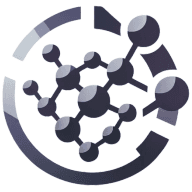Welcome to a deep dive into the fascinating world of nanotechnology and its transformative impact on electronics and computing. This blog post will explore how nanotechnology, a field that manipulates matter on an atomic and molecular scale, is revolutionizing the electronics and computing sectors. We will delve into its applications, benefits, and future prospects, providing a comprehensive understanding of this cutting-edge technology.
Nanotechnology: A Brief Overview
Nanotechnology, a term coined by the Japanese scientist Norio Taniguchi, refers to the manipulation of matter on a nanoscale. This technology operates at a scale of 1 to 100 nanometers, where a nanometer is one billionth of a meter. At this scale, the physical, chemical, and biological properties of materials differ in fundamental and valuable ways from the properties of individual atoms and molecules or bulk matter.
Nanotechnology is not merely a miniaturization of macroscopic systems. Instead, it involves a change in the nature and behavior of materials. The small size of nanoparticles gives them a high surface area to volume ratio, leading to unique properties such as increased strength, lighter weight, and greater control of light spectrum and greater chemical reactivity than their larger counterparts.
The Intersection of Nanotechnology and Electronics
Nanotechnology has been a game-changer in the field of electronics. It has enabled the development of devices that are smaller, faster, and more energy-efficient. The most significant contribution of nanotechnology in electronics is in the area of miniaturization. This has led to the creation of nanoelectronic devices that are hundreds of times smaller than their microelectronic counterparts.
Nanotechnology has also made it possible to create electronic devices with superior performance characteristics. For instance, nanoscale transistors, which are the building blocks of electronic devices, can operate at much higher speeds and are much more energy-efficient than their larger counterparts. This has led to the development of faster and more powerful processors, memory chips, and sensors.
Nanotechnology's Role in Computing
Nanotechnology is also playing a pivotal role in the evolution of computing. It is enabling the development of computers that are not only smaller and faster but also more energy-efficient and capable of storing more data. Nanotechnology has made it possible to increase the density of transistors on a chip, leading to a significant increase in processing power.
Moreover, nanotechnology is paving the way for the development of quantum computers. These computers use quantum bits, or qubits, which can exist in multiple states at once, unlike classical bits that can be either 0 or 1. This allows quantum computers to perform complex calculations much faster than classical computers. Nanotechnology is crucial in the creation and manipulation of these qubits.
Benefits of Nanotechnology in Electronics and Computing
The benefits of nanotechnology in electronics and computing are manifold. Firstly, it has led to the development of smaller, faster, and more energy-efficient devices. This has not only improved the performance of these devices but also made them more portable and user-friendly.
Secondly, nanotechnology has enabled the development of new materials with unique properties. These materials have found applications in various areas of electronics and computing, including data storage, display technology, and sensor technology.
Thirdly, nanotechnology has the potential to revolutionize the field of electronics and computing by enabling the development of quantum computers. These computers could perform complex calculations much faster than current computers, opening up new possibilities in areas such as cryptography, material science, and drug discovery.
Future Prospects of Nanotechnology in Electronics and Computing
The future prospects of nanotechnology in electronics and computing are promising. As the technology matures, we can expect to see even smaller and more powerful devices. Moreover, nanotechnology could enable the development of new types of devices that we can't even imagine today.
One of the most exciting prospects is the development of quantum computers. While still in their infancy, quantum computers have the potential to revolutionize computing by performing complex calculations much faster than current computers. Nanotechnology will play a crucial role in making this a reality.
Challenges and Ethical Considerations
While the potential of nanotechnology is immense, there are also challenges and ethical considerations that need to be addressed. One of the main challenges is the high cost of nanotechnology research and development. Moreover, there are concerns about the environmental and health impacts of nanoparticles.
From an ethical perspective, there are questions about who will have access to the benefits of nanotechnology and how it will be regulated. As with any new technology, it is crucial to ensure that the benefits of nanotechnology are distributed equitably and that its potential risks are managed responsibly.
Wrapping Up: Nanotechnology's Transformative Impact on Electronics and Computing
In conclusion, nanotechnology is playing a transformative role in the field of electronics and computing. It is enabling the development of smaller, faster, and more energy-efficient devices, and paving the way for the advent of quantum computing. While there are challenges and ethical considerations to be addressed, the potential benefits of nanotechnology are immense. As we continue to explore and harness the power of the nanoscale, the future of electronics and computing looks promising.

